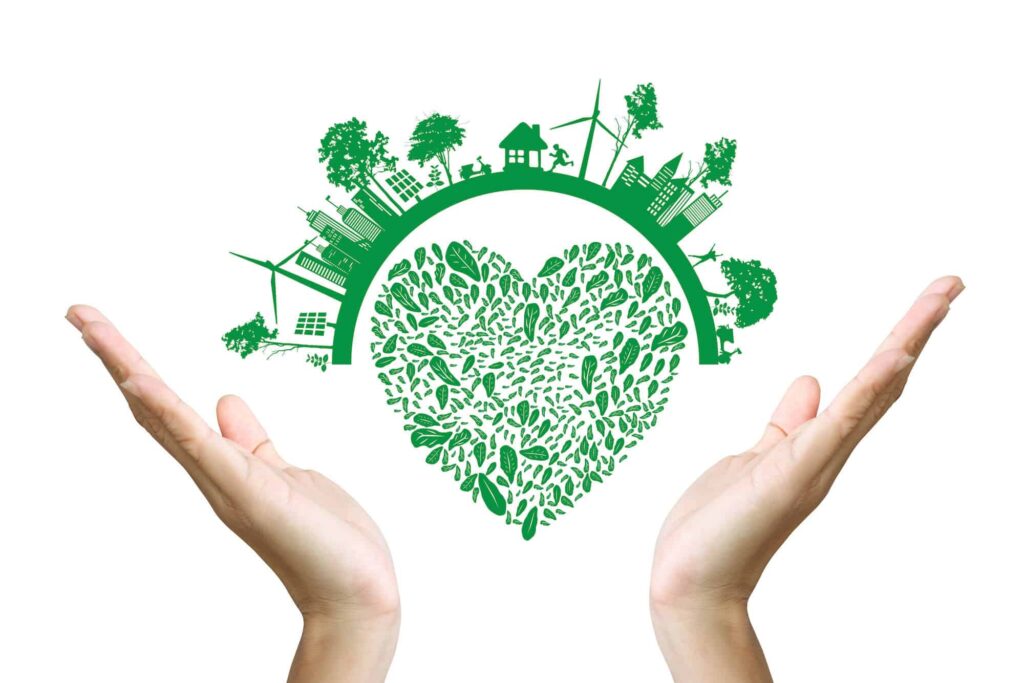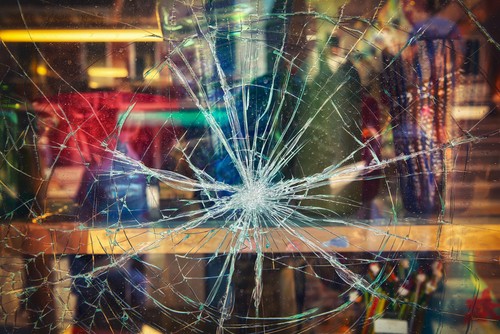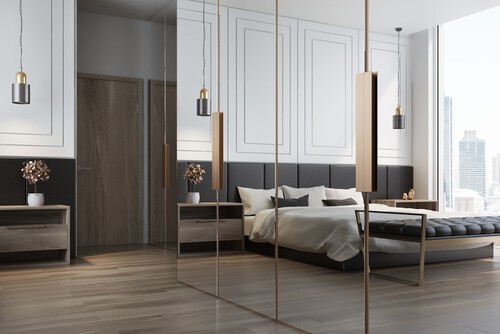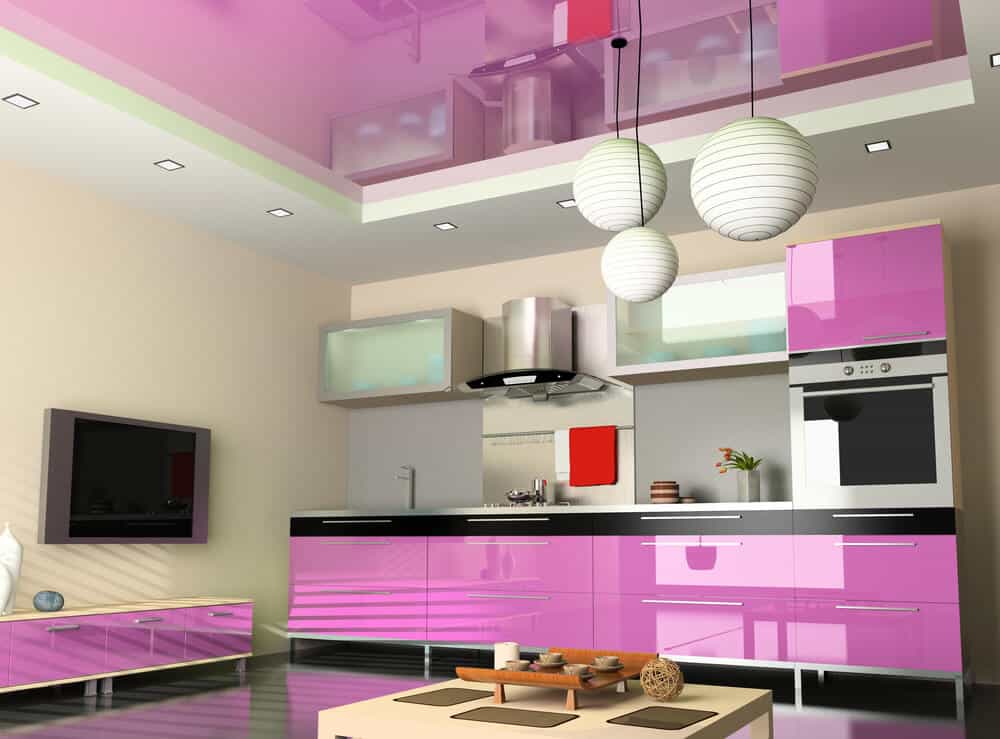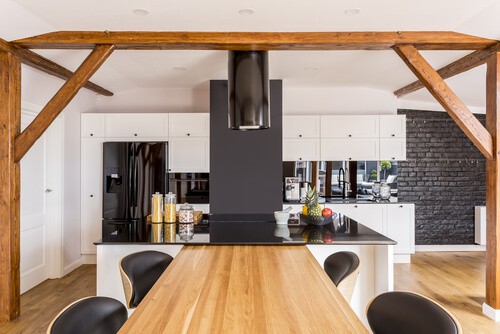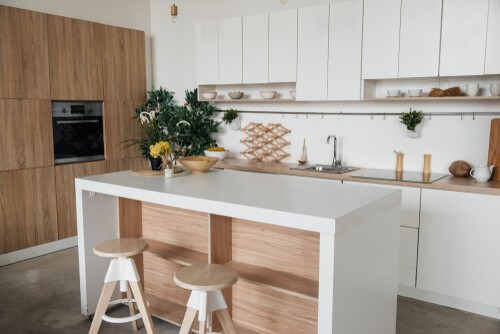Double Glazing & The Environment
As a nation, over the last decade we have begun to wise up to the impact we are having on the environment and have slowly been taking steps to combat the damage being done to the planet, for example by recycling more, wasting less and using less energy. Every action we take, however small, still does its part towards helping our environment. However, there are still many things we could be doing that we aren’t even aware of. When it comes to our homes, there are tons of practical steps we can take to make them more eco-friendly and efficient, that don’t involve sitting at home in the dark with the lights off or throwing out the TV.
In fact, one of the easiest and most beneficial ways to make your home more environmentally friendly and reduce your carbon footprint is by installing double glazing.
What is our Carbon Footprint?

To create energy, we burn fossil fuels. Fossil fuels are fuels formed by the natural decomposition and fossilisation of ancient plants and animals, over the course of millions of years. Buried underground and subjected to pressure from rocks and dirt, as well as heat from the earth’s core, they are converted into fuels such as gas, oil and coal. Humans mine these fossil fuels for energy use. Even when it comes to electricity, many of our electrical power stations are powered by fossil fuels.
There are alternative types of energy, which are starting to be used more and more frequently thanks to scientists’ search for more renewable energy sources, including solar, wind and hydro energy. However, at the time of writing, fossil fuels account for over 80 percent of the energy we use in the UK, according to data from the World Bank.
When we burn fossil fuels, carbon dioxide is released into the atmosphere. As many of us are aware, plants and trees convert carbon dioxide back into oxygen. However, the rate at which we are burning through fossil fuels means that our plants and trees cannot meet the demand we are creating, meaning carbon dioxide stays in the atmosphere, causing the global temperature to rise. Deforestation makes this problem even worse. Our carbon footprint is the impact of all our activities that produce carbon, this includes in our homes, transport use and even shopping habits. By making your home more energy efficient, you can reduce your carbon footprint.
Levels of carbon emissions in the UK in 2017 were estimated to be at 367 million tonnes, which marks a continuing decrease thanks to the country’s efforts to reduce emissions, but is still high.
The UK is party to an agreement, known as the Paris Agreement, alongside 176 other parties, committing to significantly reduce carbon emissions by the year 2050. The United States recently pulled out of this agreement, to widespread anger and criticism from various stakeholders.
What is Double Glazing?
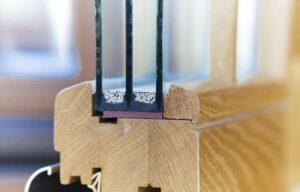
Double glazing is where two panes of glass are used to trap air between them, by leaving a small gap (usually around 16mm), with the air acting as another layer or barrier and providing additional insulation to your home as well as reducing noise coming in from outside and stopping condensation.
Around half of the heat in your home is lost through the windows, walls or attic. When you think about it in terms of your heating bills, that is a lot – in reality, you’re paying the full price for heating but only reaping half of the benefit! The more heat that is lost, the more energy you will have to use to heat your home, especially in winter, which will drive up your energy bills. And the more energy you use, the more fossil fuels will have to be burned to supply that energy, adding to the world’s carbon emissions.
It is estimated that installing double glazing in your home can reduce carbon emissions up to 680 kilograms per year.
According to USwitch, around 20 percent of your home’s heat is lost through single glazed windows. Installing double glazing can significantly reduce the amount of heat that is lost from your home, thanks to its insulating barrier.
Air or special gases can be trapped between the two panes to create an additional barrier for heat and noise. Gases commonly used include argon, xenon and krypton, as these are known for their insulating properties. Double glazing units that use air instead of gas are somewhat cheaper, albeit less effective overall.
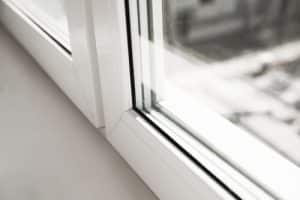
Reputable glaziers will use energy efficient glass when installing double glazing. The most energy efficient glass is low emissivity or ‘Low-E’ glass. Low emissivity glass has an invisible metal oxide coating on one side of the pane, allowing light to pass through freely, but preventing more heat from escaping. The panes are separated using pane spacers. The most efficient type of pane spacer is one that contains little or no metal, as metal conducts heat.
There are a variety of different materials that can be used for double glazed window frames, including wood, uPVC, composite, aluminium or steel. Each material has different environmental benefits. uPVC, aluminium and steel frames are long lasting and recyclable, while wooden frames have a lower environmental impact overall, but require more maintenance. If you are choosing a window frame, make sure to check the energy ratings.
Top Tip: When choosing double glazing, make sure you look for glazing which is ‘energy saving recommended’. Check for the BRFC rating.
Not only does it keep your home insulated, but double glazed windows with tilt and turn opening mechanisms or trickle vents can also help increase the ventilation in your home, enhancing the flow of air so that you don’t need to invest in fans or expensive air conditioning systems which, in turn, use excess energy contributing to your carbon footprint.
Over a quarter of carbon emissions in the UK come from the energy we use in our homes, therefore making changes such as installing double glazing can have a bigger impact on the world than we fully realise.
Secondary Glazing
 If installing double glazing isn’t an option because, for example, you live in a listed or heritage property, but you are still interested in making your home more energy efficient, you could opt for secondary glazing. Secondary glazing involves adding a thin windowpane next to your existing window. Both lightweight and discreet, it is the perfect solution, recommended by English Heritage, for when you can’t install double glazing. For more information about secondary glazing, click here.
If installing double glazing isn’t an option because, for example, you live in a listed or heritage property, but you are still interested in making your home more energy efficient, you could opt for secondary glazing. Secondary glazing involves adding a thin windowpane next to your existing window. Both lightweight and discreet, it is the perfect solution, recommended by English Heritage, for when you can’t install double glazing. For more information about secondary glazing, click here.
What is my Carbon Footprint?
 If you are interested in finding out more about the impact you are having on the planet, you can use this helpful online calculator to see your individual carbon footprint, along with some handy tips to help you live a bit more eco-friendly.
If you are interested in finding out more about the impact you are having on the planet, you can use this helpful online calculator to see your individual carbon footprint, along with some handy tips to help you live a bit more eco-friendly.
The World Wildlife Fund has offered some other helpful suggestions for saving energy in your home, including:
- Replacing light bulbs with energy saving bulbs
- Insulating your loft
- Cavity or solid wall insulation
- Getting a condensing boiler installed
- Adding low flow fittings to taps and showers
- Installing solar panels
- Draught proofing
- Choosing energy efficient appliances
If you’re still not convinced about the benefits of double glazing for the environment, just consider the myriad other benefits of installing double glazing. For example, the Energy Saving Trust estimates that by installing double glazing in your home you could save an average of £80 up to £100 per year on your energy bills as a result. This handy table on the Energy Saving Trust website estimates the savings to be made from installing double glazing on different types of home.
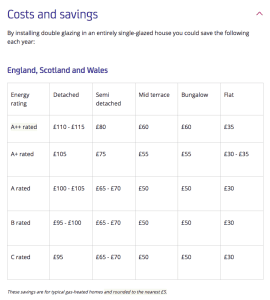
If you’d like to find out more about double glazing and how it can benefit your home, visit the Energy Saving Trust’s website for other helpful advice and guidance about saving energy and going green.
About Us
Dunstable Glass is a reputable, reliable independent glass supplier, servicing customers across Bedfordshire, Hertfordshire and Buckinghamshire. We offer expert double glazing in a range of thicknesses as well as comprehensive double glazing repairs. All our double glazing units come with a five-year guarantee. To find out more about our double glazing services, visit our site or call us on 01582 807976 and speak to one of our team today.

